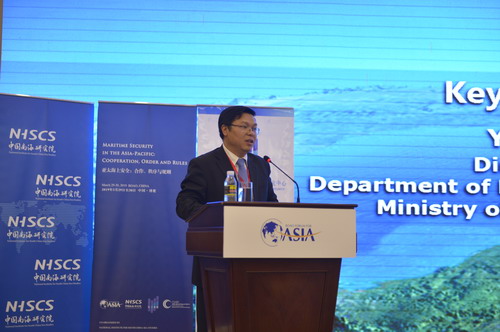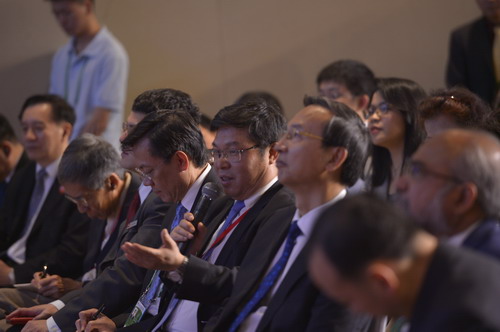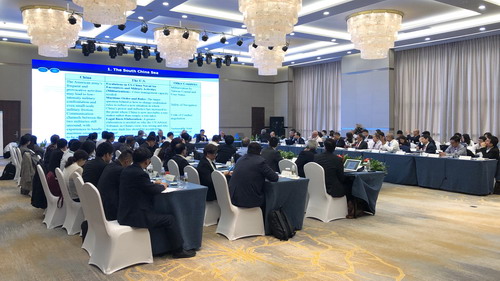
From March 29 to 30, 2019, the South China Sea session of Boao Forum for Asia (BFA) Annual Conference 2019 was successfully held in Boao, Hainan Province. Themed "Maritime Security in the Asia-Pacific: Cooperation, Order and Rules", the session brought together nearly 100 scholars, officials and industry representatives from more than ten countries and regions within and outside the South China Sea. Director-General of the Department of Boundary and Ocean Affairs of the Foreign Ministry Yi Xianliang attended the session and delivered a keynote speech.
Yi Xianliang said that the security of the South China Sea should be safeguarded under order and rules, instead of power. As early as in the 1990s, China and the Association of Southeast Asian Nations (ASEAN) countries have made efforts to explore rule-based peace and stability. The "South China Sea Rules" was established in the Declaration on the Conduct of Parties in the South China Sea signed in 2002. The "South China Sea Code of Conduct" consultation will further enhance the institutional guarantee of peace and stability in the Asia-Pacific region and explore a road of maritime governance with Asian characteristics. The security of the South China Sea coastal states and their people should be the highest priority. Cooperation is the major approach to guarantee and promote security, through which all countries should work together to ensure and advance security. The South China Sea issue discussed by China and ASEAN countries is actually different from the "South China Sea issue" advocated by the United States. The South China Sea issue should not become a tool for the strategic containment toward China of major countries outside the region. Outside countries should play a constructive role in regional peace and stability, rather than become the source of instability that undermines peace and stability in the South China Sea. China will, as always, persist in resolving disputes through dialogue and consultation, establishing benign interactions through rules, and achieving common development through mutually beneficial cooperation to promote the building of a community with a shared future for mankind, and make new contributions to the long-term stability of the South China Sea and the common prosperity of the region.

Chairman of the Center for International Strategy and Security at Tsinghua University Fu Ying, President of National Institute for South China Sea Studies Wu Shicun, Co-founder of the Centre for Strategic and International Studies Jusuf Wanandi, and other representatives present at the session generally agreed that the Asia-Pacific maritime issue is undergoing profound and complex changes. All parties concerned should build consensus through dialogue, promote peace through cooperation, respect each other and take each other's concerns into consideration. Starting with the cooperation in the fields of maritime situation control and fishery resource conservation, all parties should push forward the formulation of rules such as the "South China Sea Code of Conduct" consultation, and cooperate to build a maritime order featuring universal security and common propriety.
The session was co-sponsored by National Institute for South China Sea Studies, the Center for International Strategy and Security at Tsinghua University, China-Southeast Asia Research Center on the South China Sea and BFA Secretariat. The session also carried out in-depth exchanges and discussions on topics such as construction of the 21st Century Maritime Silk Road, maritime security, marine ecological protection and fishery resource conservation, Hainan Free Trade Zone (Port) construction, and Pan-South China Sea Economic Cooperation Circle.

